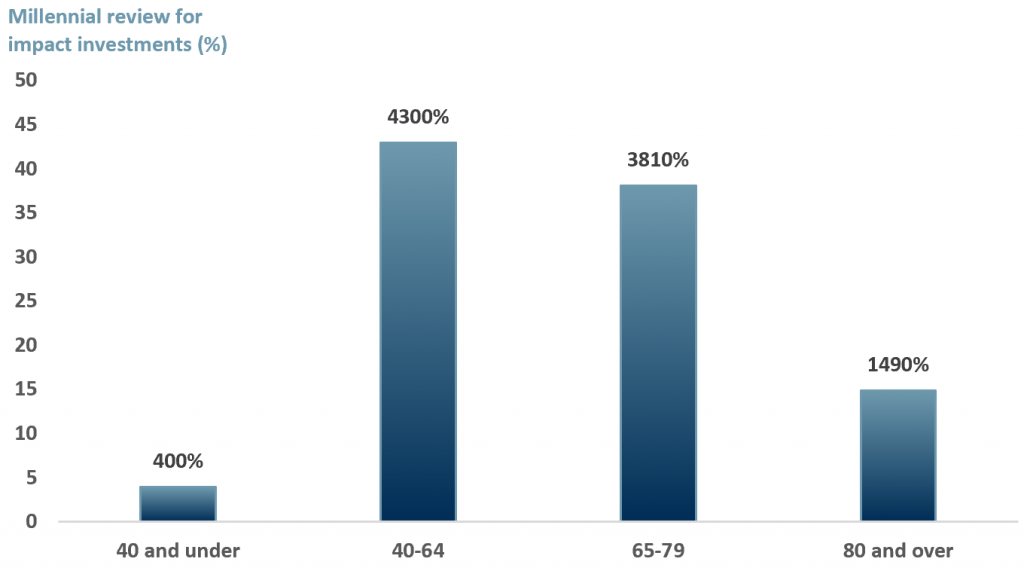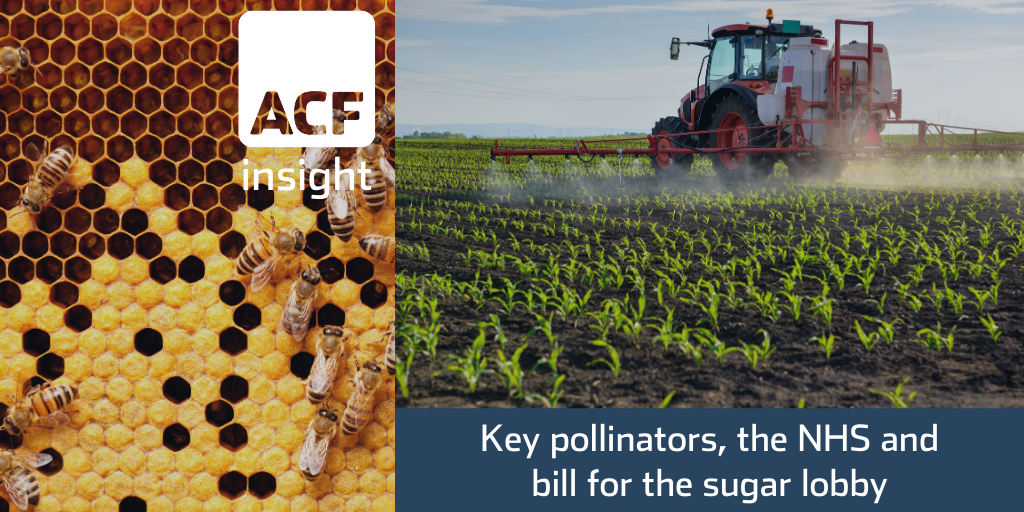Saving bees and billing the sugar lobby
The UK government authorised the limited use of a neonicotinoid pesticide on 9 Jan 2020, known to kill bees. Pesticides drastically affect an already dwindling bee population.
- A product containing neonicotinoid thiamethoxam (chemical similar to nicotine), used to treat sugar beet seed, has been approved for use by UK Environment Secretary Gorge Eustice. The product is banned throughout the EU.
- The pesticide is used to treat “virus yellows disease” – a complex of three different viruses that affects sugar beet and turns the crop yellow. Affected farmers yield losses have reached up to 80% because of the virus complex.
- Emergency authorisation has been granted for the product for up to 120 days in a “limited and controlled” manner following the British Sugar and National Farmers Union (NFU) lobbying of the government. This seems reasonable.
- But studies have shown that 1/3 of the UK bee population has already disappeared over the past 10 years. Over 75% of UK crop species are pollinated by bees (though other insects can contribute).
- Studies have also shown that neonicotinoid products can weaken bees’ immune systems and hive bound worker bees (baby bees) ‘brains’, leaving them unable to fly. Other studies show honey contaminated with neonicotinoid.
- Concerns arise also around the possible contamination of rivers if these pesticides are applied to sugar beet. In addition, the effects that the pesticide would have on birds, etc. that eat the sugar beet seeds.
While authorising emergency use of pesticides for diseases and pests is nothing new, it seems that Covid-19 has created a state of panic.
The pandemic has had an effect on the global economy – some sectors have been harder hit that others and one of these it appears, is the global farming/agricultural sector. Crops have been dwindling and farms closing down due to lockdowns.
Pollinating insects are important to our ecosystem. They increase crop yields and also improve the quality of the produce and its life span. Though other insects assist in pollination, bees dominate.
In addition, based on their social behaviour, we know that bees and ants (both Hymenoptera) can also teach us about disease containment.
Pesticides are harmful to our ecosystem and both directly and indirectly to human health.
In order to counteract the effects of climate change, but more importantly prevent the use of pesticides, bringing back the apparently abandoned discipline of Crop Rotation (or Rotational Farming) is a solution.
Crop rotation has been in practice for centuries and dates as far back as 6000 BC where it was used in the ‘Ancient Near East’ (present day Middle East). It is used to maintain, restore and retain nutrients in the soil without synthetic products, in turn, producing higher crop yields.
By planting the same crop in the exact same soil every year, it makes the crop more susceptible to pests and diseases as they tend to get ‘comfortable’ in their current environment. Crop rotation avoids that.
In addition, eliminating or decreasing the sugar beet crop is also not necessarily a bad idea, as the amount of sugar consumption by humans has led to man-made diseases such as Type 2 Diabetes, the UK is a notorious global leader in sugar consumption per pop ranking 7th below the US that is no. 1. (Sugar beets are primarily used in the production of refined sugar.)
Type 2 Diabetes is a result of having too much sugar in the bloodstream (i.e. glucose once ingested). Then the insulin in the pancreas does not work properly and is not enough to be able to breakdown the glucose, causing your blood sugar levels to rise.
Type 2 Diabetes is a serious condition that can last a lifetime as there is still no cure for it. It can cause serious long-term conditions such as obesity, hypertension and blindness. (There is however growing evidence that losing weight can reverse Type 2 Diabetes).
According to Diabetes UK the average cost of Diabetes to the UK’s NHS per year is estimated at ~£9.8bn. This number breaks down into £2.1bn for treatment and £7.7bn for complications. (Diabetes UK – A Cost of Diabetes Report Jan 2014). Diabetes UK estimates that the total costs of diabetes will increase to ~£16.9bn by 2035/36.
In exhibit 1 below, we show the age distribution of individuals with Type 2 Diabetes. This provides an indication as to the extent of the cost based on the age demographic.
Exhibit 1 – Age distribution of people with Type 2 Diabetes in the UK 2019
 Sources: ACF Equity Research Graphics; Public Health England.
Sources: ACF Equity Research Graphics; Public Health England.
The above raises cause for concern as the majority (53%) are 65 and over and as we know the cost of palliative care, especially in the last 6 months to 6 weeks of life, can easily outstrip the costs of treatment. Average cost per day is ~£550/person. (NHS, 2014)
So the question becomes – why put key pollinators at risk for the sugar lobby? The sugar lobby remains one of the UK’s most powerful and influential groups.
As sugar is a big industry is to be expected that its lobby group is influential. But the sugar lobby charges us twice for its product – when we consume it and when our taxes and or savings are used in health spending to correct the deleterious effects of over consumption.
Perhaps the sugar lobby should pay the NHS £9bn bill per annum and a £600bn windfall penalty for the last 60 years of damage to UK productivity and direct health costs (an undoubted under-estimate on our part)?
While a quick fix is sometimes necessary (as per the use of pesticides mentioned above), researchers, scientists, lobby groups and politicians need to pay far more consideration to the long-term implications of the use of neonicotinoid and other pesticides.
As investors are drawn to sustainable business practices, small and mid-caps could take advantage of such occurrences as an opportunity to find alternative and less damaging solutions. This we forecast, will be a future growth sector in which the UK could become a surprising leader (viz the restaurant sector).
With pro-environmental government intervention and increased R&D, there is a whole range of possibilities for innovation (and so GDP growth) to deliver what we want and need whilst maintaining the health of our planet.
Author: Renas Sidahmed – Renas is a Staff Analyst and part of the Sales & Strategy team at ACF Equity Research. See Renas’s profile here
















